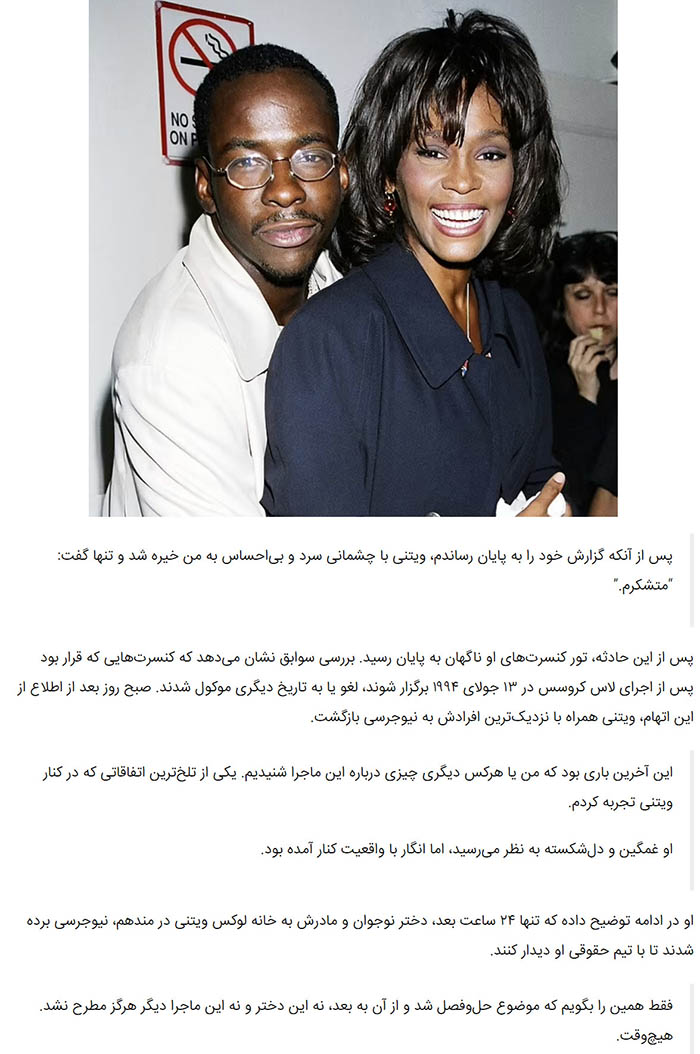That Never Was: A Shocking Revelation from Whitney Houston’s Bodyguard
A Closer Examination of the Allegations
As the narrative unfolds within David Roberts’ memoir, the subject of the alleged incident involving Bobby Brown and the teenage girl raises important questions about agency, credibility, and the impact of trauma on young individuals. In an era when discussions surrounding consent, sexual misconduct, and the voices of survivors have become increasingly prominent, it is crucial to examine such allegations with the gravity they deserve. Allegations like these can have cascading effects on all involved—surely for Whitney Houston, whose tumultuous relationship with Brown had already drawn widespread scrutiny and speculation.
Roberts, with his law enforcement background, approached the allegations with caution, emphasizing the lack of verifiable evidence. This highlights a fundamental challenge faced in many cases of alleged misconduct—especially those involving minors—a dilemma that often pits immediate, emotional responses against the necessity of due process. While Roberts regarded the accusation as unsubstantiated, the implications for the affected parties could hardly be ignored. If sustained and investigated, such claims can alter lives, careers, and generational legacies forever.
Whitney’s Choices and the Burden of Love
At the center of all these revelations lies Whitney Houston—a woman gifted with an unparalleled voice yet burdened by the realities of her personal life. Whitney’s relationship with Bobby Brown has long been characterized by love and tumult, with both parties struggling under the weight of addiction and public scrutiny. Having been the driving force behind the “Bodyguard” tour, Whitney evidently dedicated herself to her craft and her family. Yet, as Roberts chronicles, the emotional toll took its toll on her health and spirit.
In a moment that encapsulates her struggle, Whitney’s reaction upon hearing about the allegations—from shock to resignation—speaks volumes about her complicated emotional landscape. Her response to Roberts—simply saying “Thank you”—transcended words. It implied an understanding of the complexities that intertwined her professional obligations with her wish to maintain a facade of family stability, even at the expense of her well-being.
Whitney’s desire to be loved and accepted perhaps clouded her judgment, pushing her to forge ahead even when the cracks in her life and marriage became glaringly apparent. Her infamous struggles with addiction and a tumultuous marriage to Brown have become part of her narrative, but the unaddressed incidents highlighted in Roberts’ memoir invite readers to reflect not just on Whitney’s choices but the societal and communal pressures that influenced them.
March 6, 2025 | 7:32 pm




